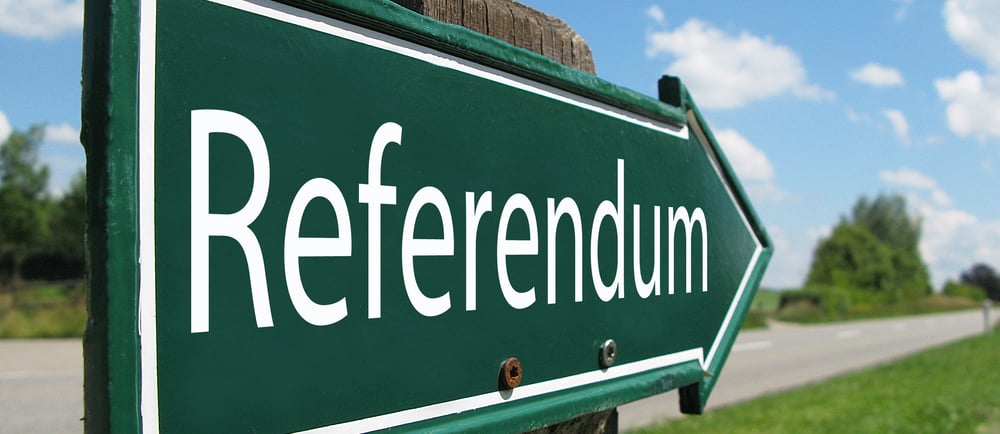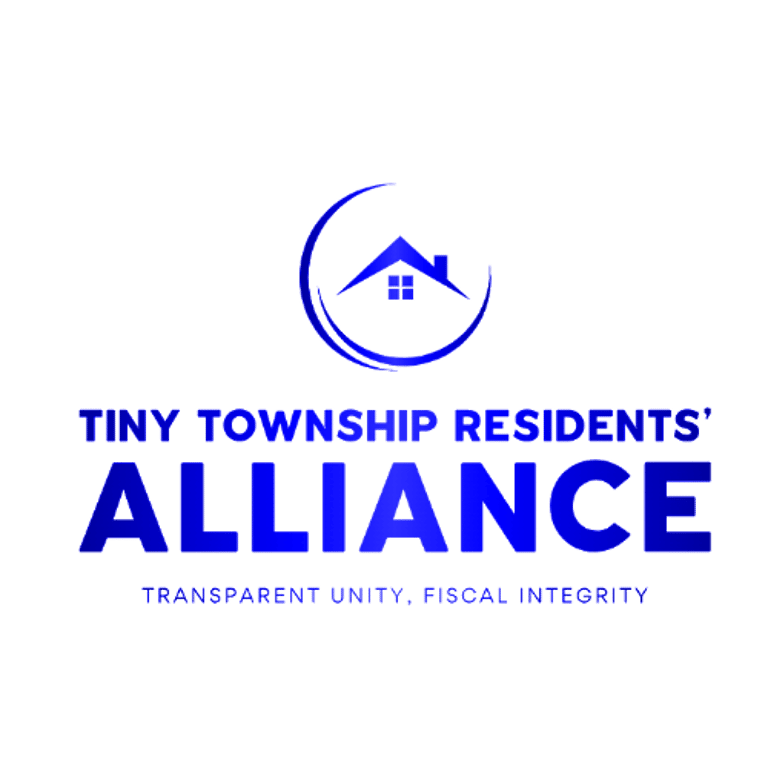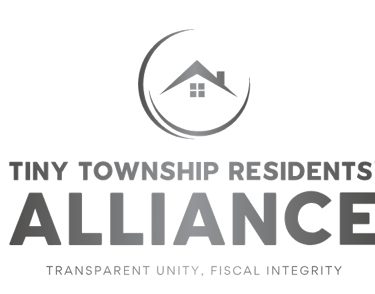Recommendation to take the New Build to the people of Tiny and call for a referendum
Scheduled deputation to Council by local Tiny Township resident and taxpayer, Borys Kowalsky, PhD on the case for holding a referendum on the new administrative centre project. Given the project's potential financial burden and lack of public debate during the last election, a referendum is deemed necessary to ensure residents' voices are heard.
Borys Kowalsky, PhD
6/26/20245 min read


Your Worship Mayor Evans and Members of Council:
I respectfully take this opportunity you’ve graciously granted me to make a case for holding a Tiny Township referendum on whether to proceed with or else terminate the township’s new administrative centre building project.
Admittedly, referenda are political exercises that fall well outside the boundaries of the normal or regular conduct of democratic politics. Nevertheless, they are not for that reason to be considered undemocratic. On the contrary, one may well consider the referendum one of the purest expressions of democracy in action. For in a referendum, it is the majority position of all citizens voting Yes of No on a practical question directly put to them by government that prevails.
To be sure, in addition to being highly irregular measures, referenda are exceedingly time-consuming and not cost-free to organize. For the vast majority of issues government is called upon to deal with, the ordinary procedures of representative democracy suffice. We voting citizens elect our representatives, and they make decisions (laws, by-laws, policies, etc.) to address our concerns (which the civil service then implements). If we’re generally unhappy with our current reps, then come next election we can vote them out of office and replace them with, we hope, a new, “better” set of reps.
But from time to time in the life of a democratic society, extraordinary situations arise for which ordinary democratic procedures are insufficient. One such situation is where the issue is widely considered of a magnitude too large for the government to decide without the direct input of the people. A situation of this kind may call for an extraordinary measure like a referendum.
In Canada we have laws providing for referenda at various levels of government. And we have availed ourselves of them to remarkable effect. Witness the national referendum that resulted in the defeat of the hopelessly convoluted Charlottetown Constitutional Accord in 1992. And in Quebec in 1995 the separatist-minded government held a referendum to measure the degree of
popular support for its “sovereignty” platform, only to discover that the majority of Quebeckers were opposed.
One of my favorite examples, however, dates back to the collapse of the USSR in 1991. Following the failed military coup in August, Russian President Boris Yeltsin forced General Secretary Mikhail Gorbachev to accept the suspension of the Communist Party of the Soviet Union. But this in itself did not spell the demise of the USSR. The final end of the Soviet Union came only after Ukraine held a referendum to support its declaration and enactment of its sovereign independence. What an amazing use of the referendum that turned out to be!
So, what makes the situation in Tiny so extraordinary as to justify recourse to a referendum?
To begin with, there is the sheer magnitude of the building project and its potential impact, very probably highly adverse, on Tiny residents and taxpayers. Let us briefly summarize the main relevant arguments put forward in earlier deputations.
The costs of the project threaten to be very great, substantially greater than those estimated by Council’s chosen consultants. This means the project would result in tax increases substantially higher than those projected by Council; the consequent financial burden on our small community with its modest tax base would be heavy even in the best of times.
But these are far from the best of times. Surely we can all agree that circumstances have changed dramatically for the worse over the last four to five years. We’re all still grappling with the many economic challenges that followed the COVID pandemic: high food and gasoline prices, high interest and mortgage rates, erratic economic growth quite possibly verging on stagflation – difficulties often compounded by the wars in Ukraine and the Middle East.
As a result, our local economy as a whole is even less capable of bearing the financial burden of any extravagant new building project than it might have been before the pandemic.
Yet Council is proceeding as though entirely oblivious to how much economic conditions have deteriorated since the idea of a new administrative centre was first brought up over a decade ago.
Is that not planning by best-case scenario, or, in other words, wishful thinking? Yes, definitely. And the more so when one considers that Council has not adequately explored ways of still further diminishing the need and pressure to build a new administrative building, such as remote/hybrid work policies, and downsizing the municipal civil service. This is over and above
Council’s decision to forego the fiscally much more responsible option of renovating the existing facility.
To make matters worse, the new building issue was not explicitly raised and fully aired during the previous Tiny Township Council election campaign. We Tiny electors never heard anything about it from the candidates. Thus we were surprised and shocked when Council after the election suddenly started blithely talking about going ahead with the project as though nothing had changed.
Why was the new building issue not flagged and fully debated in the run-up to the election? Whatever the explanation, I hate to say this, but in the absence of a thorough vetting of the issue during the election campaign, Council never received a mandate to proceed with the project. I repeat, you really don’t have a mandate to continue with the new building project.
True, legally there may be nothing to stop you from continuing, but that’s not the same as possessing a mandate. For that, you need to have your electorate appropriately informed from the outset and firmly, clearly on side. Simply holding “information” meetings on an enormously consequential undertaking on which Tiny residents and taxpayers were never given a chance to properly weigh in – which is really all you have in mind for the upcoming public meetings in July – will not get you that mandate. On the contrary, it will be seen, indeed is already being seen, as cynical political air-brushing.
In proceeding with this project as you have been, without a clear mandate, you are rapidly losing the trust of your electors, and even in danger of being found in breach of duty as elected representatives of the people of Tiny Township.
In my opinion, shared by many, the best way for you, members of Council, to turn things around, to acquire the missing mandate and begin restoring the people’s trust, is to hold the proposed referendum. Naturally, the referendum should be preceded by open non-virtual townhalls for thoroughly vetting the issue in which all Tiny residents would be able to participate. The debate could also be carried on in local media outlets.
There has been much talk in recent years of declining trust in the West’s democratic political institutions. Please, for the sake of our community’s well-being and integrity of our democracy, don’t contribute to that pernicious trend, heed our earnest call for a referendum. We urge you to open up the issue for wide open debate in an accessible, real public forum where voters can clearly hear your case for the new building side by side with the case against it, ask questions and get different answers, all for the purpose of making up their own minds. Let the people decide!
Thank you for listening. I am open to questions.
Borys Kowalsky, Ph.D. June 26th, 2024


